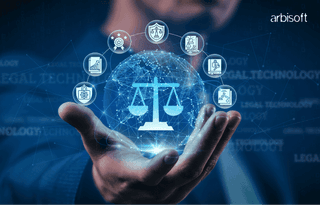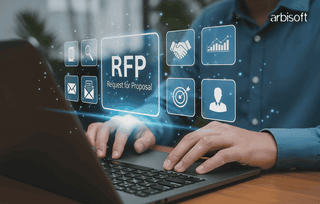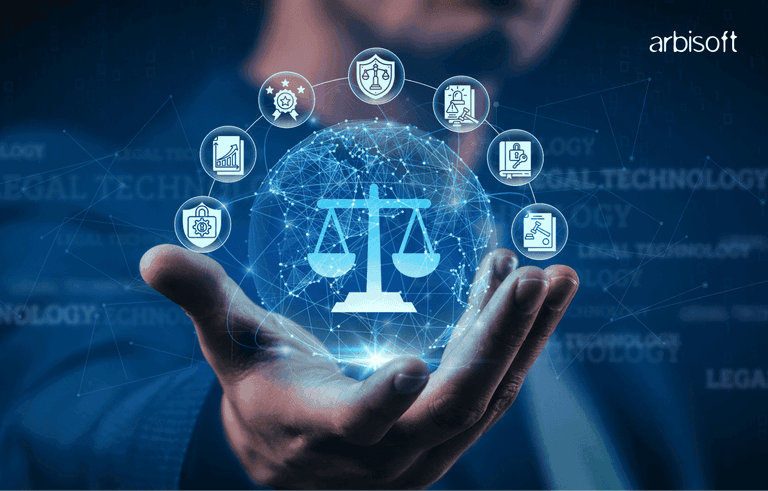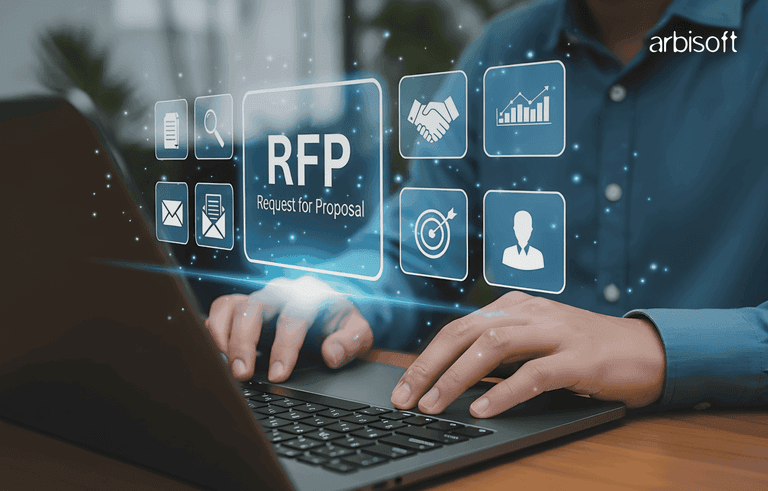We put excellence, value and quality above all - and it shows




A Technology Partnership That Goes Beyond Code

“Arbisoft has been my most trusted technology partner for now over 15 years. Arbisoft has very unique methods of recruiting and training, and the results demonstrate that. They have great teams, great positive attitudes and great communication.”
The Future of Work: Integrating Gamification into Remote and Hybrid Work Environments
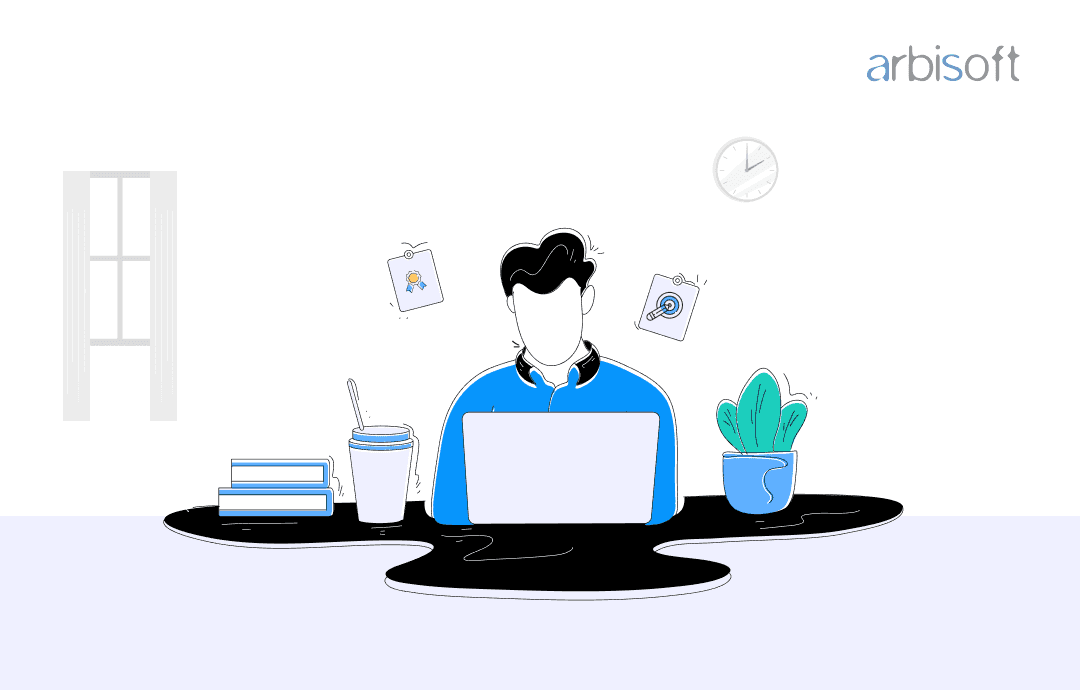
One of the most intriguing trends shaping the future of work is the integration of gamification into remote and hybrid environments. Gamification, applying game-design elements in non-game contexts, is a powerful tool for enhancing employee engagement, productivity, and overall job satisfaction.
What is Gamification?
Gamification involves incorporating elements such as point scoring, leaderboards, badges, and challenges into work processes. These elements tap into the natural human drive for competition and achievement, making routine tasks more engaging and enjoyable.
Our previous blog discusses how gamification in EdTech revolutionizes and elevates STEM education.
The Rise of Remote and Hybrid Work
Gamification transforms work into engaging experiences, fostering higher employee engagement and productivity in today's dynamic workplace. The COVID-19 pandemic accelerated the adoption of remote and hybrid work models. According to a 2023 report by McKinsey, 58% of Americans have the opportunity to work from home at least one day a week, and 35% can work from home five days a week. This shift has prompted companies to explore innovative ways to maintain productivity and engagement among remote workers.
Benefits of Gamification in Remote and Hybrid Work
Incorporating gamification into remote and hybrid work environments offers a range of benefits that can enhance the overall work experience and improve business outcomes. Here are some key advantages:
1. Enhanced Engagement and Motivation
Gamification makes work more interactive and fun, significantly boosting employee engagement. A study by TalentLMS found that 87% of employees believe gamification makes them more productive, and 84% feel more engaged when their workplace employs gamification techniques.
Furthermore, the 2023 Gallup State of the Global Workplace report indicates that only 21% of employees are engaged at work globally. Gamification has the potential to dramatically improve this statistic by making daily tasks more enjoyable and rewarding. When employees are engaged, they are more likely to be motivated, committed, and willing to put in extra effort.
2. Improved Collaboration
Gamified platforms often include social elements such as team challenges, leaderboards, and collaborative tasks, fostering a sense of community and collaboration. This is particularly beneficial in remote and hybrid settings where employees might feel isolated.
According to a report by Buffer, 20% of remote workers cite loneliness as their biggest struggle. By incorporating gamified elements that encourage teamwork and interaction, companies can help mitigate feelings of isolation and promote a more connected and collaborative work environment. Employees working together towards common goals, even in a virtual setting, can enhance team spirit and overall job satisfaction.
3. Real-Time Feedback and Recognition
Instant feedback through gamified systems helps employees understand their performance in real-time. Recognizing achievements with badges, points, or other rewards can reinforce positive behavior and motivate employees to strive for continuous improvement.
A survey by SHRM found that 69% of employees would work harder if they felt their efforts were better recognized. Real-time recognition provided by gamification ensures that employees feel valued and appreciated, leading to higher morale and increased productivity. This immediate feedback loop allows for quick adjustments and improvements, ensuring that employees are always on the right track.
4. Skill Development
Gamification can be used for training and development, making learning new skills more engaging and effective. Interactive modules, quizzes, and challenges—often delivered through modern android app development services—can help employees retain information better than traditional training methods.
According to LinkedIn's 2023 Workplace Learning Report, 94% of employees would stay at a company longer if it invested in their learning and development. Gamified learning platforms cater to this need by making skill development a fun and rewarding experience. Employees can earn badges or points for completing training modules, which not only boosts their confidence but also encourages continuous learning. Additionally, gamified training programs can be tailored to individual learning styles, making them more effective and inclusive.
5. Enhanced Performance and Productivity
Gamification can also lead to measurable improvements in performance and productivity. A report by Deloitte found that gamification can improve productivity by up to 50%. This increase is attributed to the motivational aspects of gamification, which encourage employees to perform at their best. By turning mundane tasks into engaging activities, gamification helps reduce procrastination and enhances focus. Employees are more likely to complete their tasks efficiently when motivated by the prospect of earning rewards or climbing leaderboards.
6. Better Employee Retention
Employee retention is a critical challenge for many organizations, especially in remote and hybrid work settings. Gamification can help address this issue by making work more enjoyable and fulfilling. A Society for Human Resource Management (SHRM) study found that 76% of employees cite career growth opportunities as a key reason for staying with their current employer. Gamification can provide these opportunities by creating clear pathways for career advancement through skill development and performance achievements. Employees who feel engaged and recognized are likely to remain loyal to their employers.
Take the first step towards a more engaged and productive workplace!
Download this checklist to start gamifying your remote and hybrid work environments today!

Transform your workplace into a more engaged and productive environment!
Get started today by downloading this checklist to gamify your remote and hybrid workspaces!

Best Practices for Implementing Gamification
Implementing gamification effectively requires thoughtful planning and execution. Here are some best practices to ensure successful integration:
1. Identify Clear Objectives
Before starting gamification, it's important to set clear goals. Whether you want to boost productivity, improve teamwork, or increase engagement, having clear goals will help design your gamification strategy. For example, if the goal is to boost productivity, track things like task completion rates or time spent on projects. A 2023 report by Gartner found that companies with clear goals for gamification are 40% more likely to succeed.
2. Choose the Right Tools
Picking the right tools is key for effective gamification. Many tools offer features that work well for remote and hybrid teams. A 2022 study by Forrester showed that companies using the right gamification tools saw a 30% increase in employee engagement and a 25% boost in productivity.
3. Design Meaningful Rewards
The rewards system should match your company's values and be meaningful to employees. Rewards can be anything from virtual badges and points to gift cards or extra vacation days. A Gallup survey found that 67% of employees feel the most motivated by personal and specific recognition. So, it's important to offer rewards that matter to your team. For example, offering more professional development opportunities or recognizing employees in company meetings can be very effective.
4. Ensure Inclusivity
Gamification should work for everyone, regardless of their preferences or work styles. Design challenges and rewards that appeal to all team members. A 2023 report by McKinsey found that inclusive companies are 35% more likely to outperform their competitors. To ensure inclusivity, use a variety of game elements that appeal to different personalities and work styles. For example, while some might like competitive elements like leaderboards, others might prefer teamwork challenges or personal achievement goals. Also, make sure the language and images used in gamification materials represent your diverse team.
5. Regularly Update and Adapt
Gamification strategies should change over time based on feedback and company needs. Regular updates and new challenges keep things interesting. A 2022 survey by Deloitte found that 45% of employees lose interest in gamification if it's not updated regularly. Collect feedback from employees about what they like and what could be better to help refine your approach. This keeps the gamification strategy relevant and effective.
6. Foster a Positive Culture
Gamification should help create a positive and supportive work culture. While competition can motivate, it's important to balance it with teamwork to prevent unhealthy rivalries. Encouraging teamwork and recognizing group achievements can help build a positive atmosphere. A 2023 report by the Society for Human Resource Management (SHRM) found that companies with a positive culture see a 31% increase in productivity and a 37% reduction in turnover rates. By promoting support and respect, gamification can contribute to a healthier and more productive work environment.
Examples from Real-World Experiences
Several companies have successfully integrated gamification into their remote and hybrid work models:
1. Microsoft
Microsoft uses gamification in its corporate wellness program, awarding points and badges to employees who participate in health and wellness activities. This not only promotes healthy habits but also fosters a sense of community. According to a report from the American Heart Association, companies with wellness programs see a 25% reduction in sick leave, health costs, and disability claims, demonstrating the effectiveness of such initiatives.
2. Cisco
Cisco's gamified learning platform, Cisco Learning Network, uses quizzes, challenges, and leaderboards to make professional development more engaging. This approach has led to higher participation rates and better learning outcomes. Cisco reported a 28% increase in certification completions and a 15% improvement in learning retention rates since implementing gamification.
3. Salesforce
Salesforce's Trailhead platform gamified learning and development by offering badges and points for completing modules and challenges. This has helped create a culture of continuous learning within the organization. According to Salesforce, employees who actively use Trailhead are 50% more likely to achieve their performance goals, showing the significant impact of gamification on employee development.
4. Deloitte
Deloitte uses gamification in its leadership training programs. The company introduced a program called "Greenhouse" that incorporates game elements to teach problem-solving and strategic thinking. This program has resulted in a 37% increase in employee engagement and a 25% improvement in strategic decision-making skills, according to Deloitte’s internal metrics.
5. IBM
IBM's "Innov8" program uses gamification to simulate real-world business scenarios. Employees participate in virtual games that mimic business processes, allowing them to practice decision-making in a risk-free environment. IBM reported a 20% increase in employee problem-solving abilities and a 15% rise in innovative project proposals following the implementation of Innov8.
6. Google
Google uses gamification to enhance employee productivity and engagement through a program called "gWhiz." Employees earn points for completing tasks, attending training sessions, and participating in wellness activities. Google has seen a 35% increase in task completion rates and a 25% boost in employee participation in wellness programs since introducing gWhiz.
Challenges and Considerations
While gamification offers numerous benefits, it's important to be aware of potential challenges:
1. Over-Competition
Focusing too much on competition can cause unhealthy rivalries and stress. According to a 2023 survey by PwC, 60% of employees felt stressed when gamification was overly competitive. Balancing competition with team activities can promote cooperation and reduce stress.
2. Sustainability
Keeping gamification exciting over time is difficult. A study by Deloitte in 2022 found that 45% of employees lose interest if gamification isn’t updated regularly. Regularly introducing new challenges and rewards based on employee feedback can maintain engagement.
3. Data Privacy
Collecting data for gamification must comply with privacy regulations and protect employee information. A 2023 report by the International Association of Privacy Professionals (IAPP) found that 68% of employees are concerned about data use. Be transparent about data collection, comply with laws like GDPR and CCPA, and obtain employee consent to build trust.
4. Inclusivity
Ensuring gamification appeals to everyone is crucial. A 2023 report by McKinsey found that inclusive companies are 35% more likely to perform better. Use diverse language and imagery, and offer various challenges and rewards to cater to different interests and motivations.
5. Measuring Effectiveness
Measuring the effectiveness of gamification can be challenging. According to a 2022 report by Gartner, 50% of companies struggle to measure the ROI of gamification. Using surveys, performance data, and feedback can help assess if the gamification strategy meets its goals.
Conclusion
The integration of gamification into remote and hybrid work environments represents a promising avenue for the future of work. By making tasks more engaging, fostering collaboration, and providing real-time feedback, gamification can enhance productivity and job satisfaction. As companies continue to adapt to new work models, gamification will likely play an increasingly important role in shaping the modern workplace.
Embracing this trend with thoughtful implementation and continuous innovation will help organizations stay competitive and create a more motivated and engaged workforce.








